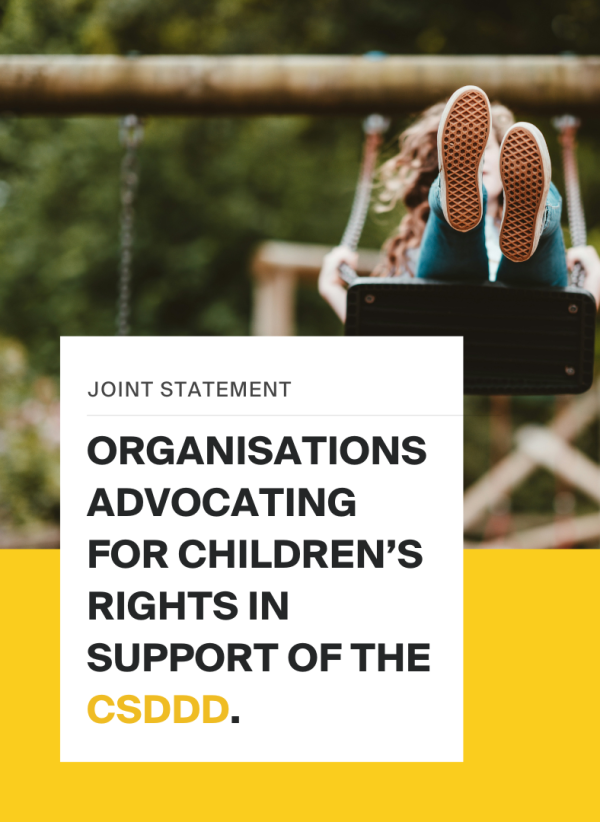This website uses cookies so that we can provide you with the best user experience possible. Cookie information is stored in your browser and performs functions such as recognising you when you return to our website and helping our team to understand which sections of the website you find most interesting and useful.

Justice, fairness, and equality before the law are the cornerstone of European values, on which our democratic societies are built. However, the power imbalance between individuals and large companies can effectively block victims of harm caused by business activities from seeking redress through judicial means, as the costs and risks are too high for the average individual. The solution to this problem lies in enabling effective means for collective redress at the EU level.
Nowadays corporations play a crucial role, providing the infrastructure for complex economic activities and relationships; thereby supporting much of humankind’s material progress and innovation. However accusations of human right violations linked to the operations and activities of corporations have reached alarming levels. They include unlawful pollution and environmental damage, abuse of labour rights, systemic discrimination, breaches of digital privacy, as well as violations of competition and consumer law.
Collective redress is widely recognised by both international and European human rights bodies, as well as European institutions and civil society, as a key tool for the protection of fundamental rights in cases concerning violations by business entities. The European Commission and the Parliament have also been promoting collective redress in the EU for nearly a decade.
In 2012 the European Parliament adopted a resolution which called for a coherent horizontal approach to collective redress in the EU. The European Commission then formally recommended Member States to implement collective redress in all areas where collective claims for injunctions or damages in respect of violations of the rights granted under Union law would be relevant, including for example in “consumer protection, competition, environment protection and financial services.”
However, in the wake of the recent “Dieselgate scandal”, EU Commissioner Věra Jourová announced plans for collective redress exclusively for consumers. Whilst this would be a positive step, it would be a departure from the Commission’s pre-existing horizontal approach to rights protection.
Violations of fundamental rights, including environmental, labour, anti-discrimination, privacy; as well as harm from breaches of business competition rules, can cause even more egregious harm than that suffered by consumers. The current disharmonised patchwork of collective redress across the EU also means some companies are more easily subjected to class-action litigation than others, depending on where they operate within the Single Market. This is creating an unfair playing field for business.
Justice, fairness, and equality before the law require the protection of all future victims of mass harm situations – not only consumers – by enabling them to join their claims in order to access justice and effective remedy.
For these reasons, and recalling the recommendations of the International and European human rights bodies and institutions, the undersigned organisations call on the EU and its Member States to:
Prepare a legislative proposal for EU collective redress that applies to all instances of harm caused by corporate entities including that which in nature relates to the environment, privacy, discrimination, or which in any way violates fundamental rights.
Signed by:
AMNESTY INTERNATIONAL
GREENPEACE
FRIENDS OF THE EARTH EUROPE
HEALTH & ENVIRONMENT ALLIANCE
EUROPEAN ENVIRONMENTAL BUREAU
BIRDLIFE
CLIENT EARTH
INTERNATIONAL FEDERATION FOR HUMAN RIGHTS (FIDH)
CORPORATE RESPONSIBILITY (CORE)
HUMAN RIGHTS INTERNATIONAL CORNER
BANKWATCH
CENTRE FOR RESEARCH ON MULTINATIONAL CORPORATIONS (SOMO)
BUSINESS & HUMAN RIGHTS RESOURCE CENTRE











